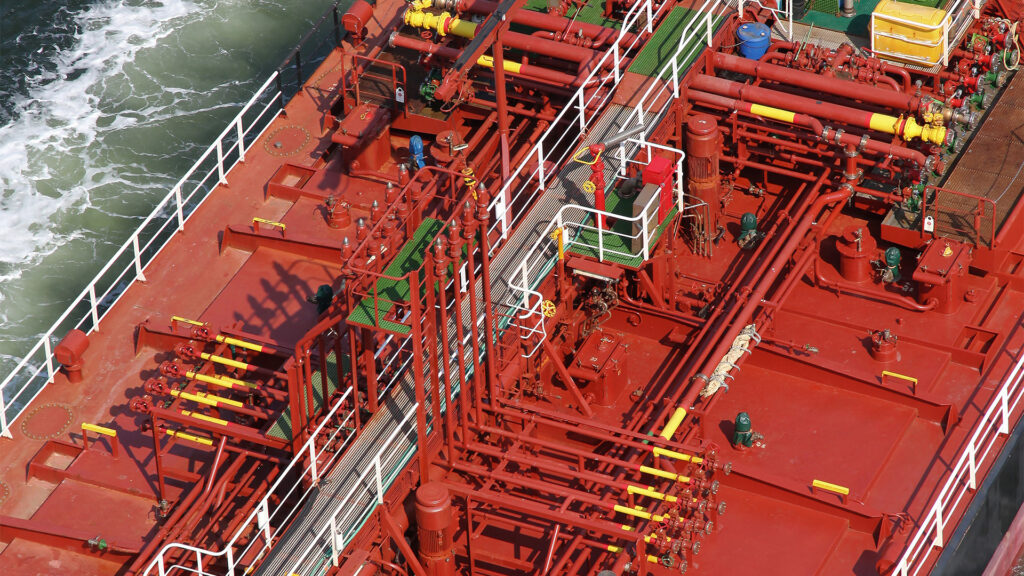
LOF 2024 – Modernising a classic?
On 1 June 2024, the Lloyd’s Salvage Arbitration Branch launched an updated edition of the Lloyd’s Standard Form of Salvage Agreement, or Lloyd’s Open Form (LOF 2024). The format remains unchanged with a simple set of boxes to be completed on page one, clauses A to L and a notices section that incorporate the Lloyd’s Salvage Arbitration Clauses (LSAC) and the Special Compensation P&I Clause (SCOPIC) into the agreement.
The Lloyd’s Standard Form of Salvage Agreement has been in use in one form or another for over 130 years and this latest iteration (the thirteenth) includes a number of amendments which simplify and modernise this well-known contract taking into account feedback from the market and stakeholders who use the contract. These changes include the adoption of gender-neutral terms, the shortening of sentences, removing references to faxes and the simplification of some of the language used.
However, by far the most significant changes relate to (i) the sharing of previously confidential settlement data with Lloyd’s; and (ii) the introduction of the new Fast-Track Documents Only (FTDO) procedure. Whilst this new procedure is analogous to the old Fixed Costs Arbitration Procedure (FCAP), the FTDO now applies to much larger claims (i.e. those with a security demand of up to US$10 million compared to US$2 million under LOF 2020). Whilst the cap on recoverable costs is higher than under FCAP, it is expected that the introduction of this new procedure will speed up the time taken to obtain an award and limit the costs incurred by the parties.
In the rest of this article, we explore some of these more important amendments and their potential implications for both property owners and the wider salvage industry. For ease of reference, a link to a marked up copy of the contract highlighting the amendments is provided at the end of this briefing reproduced with the kind permission of the Lloyd’s Salvage Arbitration Branch.
Important Notice No. 4
This has been amended, deleting the wording “The Council will not charge for such notification“. From 1 January 2023, the Lloyd’s Salvage Arbitration Branch revised their fee charging structure by introducing a management fee in addition to the hourly rate charged for work performed for each case they managed. The fee is calculated on the basis of 0.025% of the total salved value involved (with a minimum fee of £1,000 and a maximum of £10,000). The aim of the new fee structure was to assist in the administrative costs incurred by Lloyd’s in providing the maritime sector with the benefit of the LOF framework.
Important Notice No. 5 and Clause 15
The well-publicised decline in the number of LOFs entered into each year has created a number of issues for users of the contract. Property underwriters have voiced a concern in recent years that the reduction in the number of published awards has made it harder for them to predict claims and set premiums accordingly.
In order to try to resolve this issue, within 60 days of conclusion of a settlement contractors and property owners will be required to provide Lloyd’s with details of (i) the amount and currency of settlement; (ii) the apportionment as between ship, cargo, freight, bunkers, stores and any other salved property; and (iii) the date of settlement with the last remaining party. Whilst this new wording is not entirely clear, we assume that the reference to the conclusion of “a settlement” is to a global settlement with all of the property interests involved, rather than individual settlements reached with specific property interests. If this is not the case, then these new provisions will generate a significant amount of work for LOFs concerning container vessels where hundreds of different settlements can be required over the span of several years.
In order to comply with the growing commitments of large organisations to provide Environmental, Social & Governance (ESG) data, the contractors and owners of salved property are now required to provide the Council of Lloyd’s with a completed ESG data collection form (which includes details of amount of bunkers, hydrocarbons, dry/hazardous cargo and containers salved and the potential social impact averted) and details of the value of the property salved within 60 days of termination of the services. In the event that the contractor is unable to agree or confirm the salved values within this period, the contractor is to provide an estimate which is to be updated when such information becomes available.
We understand that the settlement and ESG data will be collected, aggregated and anonymised by the Council of Lloyd’s and will be published on an annual basis. Lloyd’s will otherwise keep the information confidential.
Clause 6 (Arbitrator’s Powers)
This clause has remained largely unamended save for (i) the removal of the express provision that the arbitrator shall have the power to admit such oral or documentary evidence or information as they see fit; and (ii) the ability for all meetings to now be conducted by video conference. The requirement for the parties to agree to remote meetings has also been removed. We do not consider that the deletion at (i) will significantly impact arbitration proceedings because the arbitrator still has the power “to conduct the arbitration in such a manner in all respects as they think fit“.
Clause 7 (Representation of Parties)
One of the more outdated requirements of previous versions of the LOF has been removed, namely the requirement that a party who wishes to be heard or adduce evidence had to appoint a lawyer or agent based in the United Kingdom. This means that users of the contract are likely to see more foreign lawyers representing their clients in salvage arbitrations.
Clause 8 (Arbitration Procedure)
The introduction of the FTDO procedure is perhaps the biggest change to LOF arbitration procedure for many years. The FTDO procedure replaces and significantly expands on the old FCAP which was found at Clause 15 of LOF 2020 (now deleted in this latest version). The FTDO procedure will apply to all arbitrations where the security demand is US$10 million or less (unless the arbitrator orders otherwise) although it remains open for the arbitrator to order that the new procedure should apply to larger cases. The increase in the financial threshold is a substantial hike on the earlier arrangements under the FCAP which was deemed “usually appropriate” for cases where the security demand was less than US$2 million. Time will tell how many LOFs will be dealt with under the FTDO procedure which is intended to incentivise salvors to use LOF 2024 to obtain a quick result.
The new clause provides that the FTDO procedure would not, however, be appropriate for cases where an oral hearing is required, including those involving allegations of bad faith, criticism of the contractors and those involving complex factual or expert issues (as was the case under the FCAP). Whether or not the FTDO procedure should be used must be decided at the preliminary meeting. Unlike the FCAP however, the FTDO procedure does not expressly provide that the arbitrator can later direct that the oral hearing procedure should apply should it later become apparent that the case is no longer suitable for the FTDO procedure. This therefore means that, in theory, once a salvage claim has been allocated to a ‘track’ it will remain there.
Clause 9 (FTDO Procedure)
Under the old FCAP, the arbitrator was required to “invite the parties to consider the extent of disclosure required” and, unless ordered otherwise, the parties were to disclose all documents upon which they wished to rely (including witness statements).
Under the new FTDO procedure, all references to disclosure have been removed and only those documents and statements upon which the parties wish to rely will be exchanged. Further, the documents and statements are limited to 100 pages (for the contractors) and 75 pages (for the respondents).
The word limits for the contractors’ claim submissions and the respondents’ defence submissions have been increased from 4,000 words under the old FCAP to 6,000 words under the FTDO procedure.
On the issue of costs, under the FTDO procedure the recoverable costs are capped at £30,000 for the arbitrator, £2,000 for Lloyd’s (not including the management fee referred to above), and £75,000 for the successful party. On appeal, the successful parties’ recoverable costs are capped at £50,000. These limits have increased from the £25,000 at first instance and £3,000 on appeal provided for under the FCAP in LOF 2020.
Clause 10 (Oral Hearing Procedure)
This clause remains largely unchanged save for the deadline for publication of the award changing from 1 month from the conclusion of the hearing to simply a “reasonable period”.
Clause 11 (Appeals and Cross Appeals)
Clause 11 has been amended to include the procedure for any appeals from the FTDO. The procedure for appeals from the FTDO broadly follows the procedure which applied to appeals from FCAP cases, save for a handful of important differences. The word limit for the appellant’s reply submissions has been reduced from 4,000 words to 2,500 words. However, and more notably, the earlier requirement that “the Appeal shall be heard on documents and submissions alone” has been deleted. Whilst the FTDO appeal procedure does require the appeal arbitrator to publish the appeal award and reasons as soon as reasonably possible after receiving the parties’ written submissions, the deletion of this provision could arguably leave the door open for an oral hearing to be held, even if there was not one at first instance.
Clause 14.1 (Special Cargo Provisions)
This clause sets out a pragmatic framework for dealing with unrepresented cargo, whereby settlement agreements between the contractors and a large majority of cargo interests would be considered binding on all remaining cargo interests (subject to the arbitrator’s broad discretion to give the settlements as much weight as they may consider appropriate when making a salvage award against unrepresented cargo).
The clause has also remained largely unamended, save that previously only those settlement agreements entered into with represented respondents were relevant. Now all settlement agreements (i.e. those made with both represented and unrepresented cargo owners) will be considered. This should allow contractors to deal with minority unrepresented interests who fail to engage in the arbitral process more cost effectively and to obtain and enforce any award much more quickly.
Conclusion
Whilst many of the changes (such as the adoption of simpler language and gender-neutral terms) are uncontroversial, the adoption of the FTDO procedure and requirement to disclose details of settlements will have a significant impact on the user of LOF 2024. Whilst only time will tell whether the expansion of FCAP in the form of the new FTDO procedure will encourage the use of the contract and result in more LOFs being signed, we hope that the transparency afforded by the new reporting requirements will go some way to assuaging property underwriters’ concerns.
LOF 2024 is published on the Lloyd’s website1 effective from 1 June 2024. Thanks go to the Lloyd’s Salvage Arbitration Branch for their kind permission to use the marked up contract which is available at www.hfw.com/app/uploads/2024/06/006119-LOF-2024.pdf
For further information, please contact this briefing’s authors or alternatively, please contact the Lloyd’s Salvage Arbitration Branch here2 or by the details below:
Salvage Arbitration Branch Lloyd’s
One Lime Street
London EC3M 7HA
T +44 (0) 20 7327 5408/5407/5849
F +44 (0) 20 7327 6827 /6777
E lloyds-salvage@lloyds.com
Referencing
1. LOF 2024 – For website – 22.05.2024.pdf (lloyds.com)
2. https://www.lloyds.com/resources-and-services/salvage-arbitration-branch










